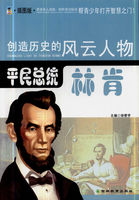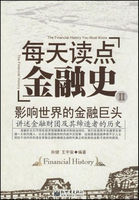And the touch, in the event, was the face of a fellow-mortal.This face, one grey afternoon when the leaves were thick in the alleys, looked into Marcher's own, at the cemetery, with an expression like the cut of a blade.He felt it, that is, so deep down that he winced at the steady thrust.The person who so mutely assaulted him was a figure he had noticed, on reaching his own goal, absorbed by a grave a short distance away, a grave apparently fresh, so that the emotion of the visitor would probably match it for frankness.
This fact alone forbade further attention, though during the time he stayed he remained vaguely conscious of his neighbour, a middle-aged man apparently, in mourning, whose bowed back, among the clustered monuments and mortuary yews, was constantly presented.
Marcher's theory that these were elements in contact with which he himself revived, had suffered, on this occasion, it may be granted, a marked, an excessive check.The autumn day was dire for him as none had recently been, and he rested with a heaviness he had not yet known on the low stone table that bore May Bartram's name.He rested without power to move, as if some spring in him, some spell vouchsafed, had suddenly been broken for ever.If he could have done that moment as he wanted he would simply have stretched himself on the slab that was ready to take him, treating it as a place prepared to receive his last sleep.What in all the wide world had he now to keep awake for? He stared before him with the question, and it was then that, as one of the cemetery walks passed near him, he caught the shock of the face.
His neighbour at the other grave had withdrawn, as he himself, with force enough in him, would have done by now, and was advancing along the path on his way to one of the gates.This brought him close, and his pace, was slow, so that--and all the more as there was a kind of hunger in his look--the two men were for a minute directly confronted.Marcher knew him at once for one of the deeply stricken--a perception so sharp that nothing else in the picture comparatively lived, neither his dress, his age, nor his presumable character and class; nothing lived but the deep ravage of the features that he showed.He SHOWED them--that was the point; he was moved, as he passed, by some impulse that was either a signal for sympathy or, more possibly, a challenge to an opposed sorrow.He might already have been aware of our friend, might at some previous hour have noticed in him the smooth habit of the scene, with which the state of his own senses so scantly consorted, and might thereby have been stirred as by an overt discord.What Marcher was at all events conscious of was in the first place that the image of scarred passion presented to him was conscious too--of something that profaned the air; and in the second that, roused, startled, shocked, he was yet the next moment looking after it, as it went, with envy.The most extraordinary thing that had happened to him--though he had given that name to other matters as well--took place, after his immediate vague stare, as a consequence of this impression.The stranger passed, but the raw glare of his grief remained, making our friend wonder in pity what wrong, what wound it expressed, what injury not to be healed.What had the man HAD, to make him by the loss of it so bleed and yet live?
Something--and this reached him with a pang--that HE, John Marcher, hadn't; the proof of which was precisely John Marcher's arid end.















